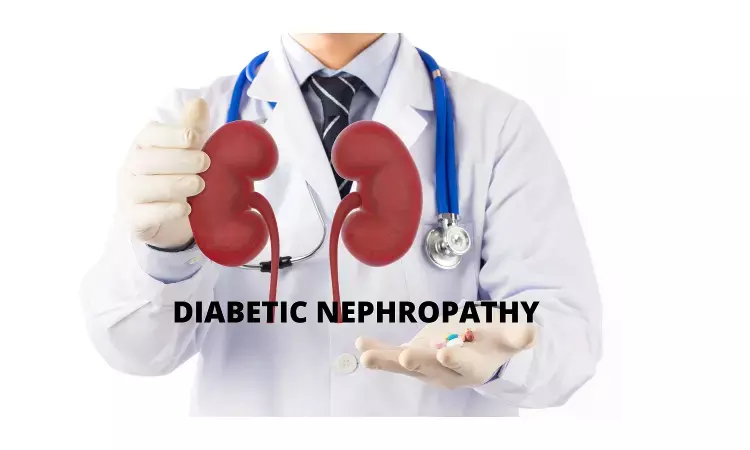- Home
- Medical news & Guidelines
- Anesthesiology
- Cardiology and CTVS
- Critical Care
- Dentistry
- Dermatology
- Diabetes and Endocrinology
- ENT
- Gastroenterology
- Medicine
- Nephrology
- Neurology
- Obstretics-Gynaecology
- Oncology
- Ophthalmology
- Orthopaedics
- Pediatrics-Neonatology
- Psychiatry
- Pulmonology
- Radiology
- Surgery
- Urology
- Laboratory Medicine
- Diet
- Nursing
- Paramedical
- Physiotherapy
- Health news
- Fact Check
- Bone Health Fact Check
- Brain Health Fact Check
- Cancer Related Fact Check
- Child Care Fact Check
- Dental and oral health fact check
- Diabetes and metabolic health fact check
- Diet and Nutrition Fact Check
- Eye and ENT Care Fact Check
- Fitness fact check
- Gut health fact check
- Heart health fact check
- Kidney health fact check
- Medical education fact check
- Men's health fact check
- Respiratory fact check
- Skin and hair care fact check
- Vaccine and Immunization fact check
- Women's health fact check
- AYUSH
- State News
- Andaman and Nicobar Islands
- Andhra Pradesh
- Arunachal Pradesh
- Assam
- Bihar
- Chandigarh
- Chattisgarh
- Dadra and Nagar Haveli
- Daman and Diu
- Delhi
- Goa
- Gujarat
- Haryana
- Himachal Pradesh
- Jammu & Kashmir
- Jharkhand
- Karnataka
- Kerala
- Ladakh
- Lakshadweep
- Madhya Pradesh
- Maharashtra
- Manipur
- Meghalaya
- Mizoram
- Nagaland
- Odisha
- Puducherry
- Punjab
- Rajasthan
- Sikkim
- Tamil Nadu
- Telangana
- Tripura
- Uttar Pradesh
- Uttrakhand
- West Bengal
- Medical Education
- Industry
Circulating monocytes and serum albumin significantly associated with albuminuria in DKD: Study

USA: In diabetic kidney disease (DKD), circulating monocytes and serum albumin are associated significantly with albuminuria, reveals a recent study. The results, published in the Canadian Journal of Diabetes, support the potential role of the innate immune system in diabetic microvascular end-organ damage and urinary protein loss.
Cagney Cristancho and Christopher C. Hemond conducted the study with the objective to characterize clinical associations between peripheral blood immune populations and DKD in type 2 diabetes (T2D) patients.
For this purpose, the researchers queried hospital records from an outpatient diabetes primary care clinic for clinical and laboratory data, including complete blood counts with differentials, glycated hemoglobin (A1C), serum albumin and globulin, and urine albumin-to-creatinine ratio. 198 patients had complete cross-sectional data with temporally proximate complete blood counts and urine albumin-to-creatinine ratios.
The hypothesis that higher numbers of circulating innate immune populations would be associated with DKD was tested while accounting for known demographic, clinical, and laboratory risk factors. DKD was defined as an albumin-to-creatinine ratio of >3 mg/mmol or an estimated glomerular filtration rate (eGFR) of <60 mL/min/1.73 m2 from the Chronic Kidney Disease Epidemiology Collaboration.
Following were the study's key findings:
· Adjusted analyses demonstrated significant associations between higher urine albumin-to-creatinine ratio and peripheral circulating monocytes, independent of other established significant risk factors, including blood pressure, A1C, age, and sex.
· Serum albumin was identified as a potentially important modifying factor of albuminuric kidney disease, which interacts with monocytes in more advanced diseases. In contrast, age was the variable most strongly predictive of eGFR.
"These results back the potential role of the innate immune system in diabetic microvascular end-organ damage and urinary protein loss, and maybe readily translatable clinical markers to be incorporated into risk-assessment models for diabetes prognostication," the authors concluded.
Reference:
The study titled, "Serum Albumin Modifies the Effect of Peripheral Blood Monocytes on Severity of Diabetic Nephropathy in an Adult Population," was published in the Canadian Journal of Diabetes.
Dr Kamal Kant Kohli-MBBS, DTCD- a chest specialist with more than 30 years of practice and a flair for writing clinical articles, Dr Kamal Kant Kohli joined Medical Dialogues as a Chief Editor of Medical News. Besides writing articles, as an editor, he proofreads and verifies all the medical content published on Medical Dialogues including those coming from journals, studies,medical conferences,guidelines etc. Email: drkohli@medicaldialogues.in. Contact no. 011-43720751


